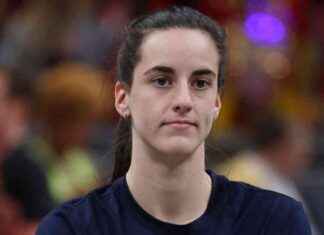Caption
Close
In early 2008, Pau Gasol was a potentially transformative basketball force just reaching the height of his powers. The only franchise he had ever played for, however, was largely powerless.
The Grizzlies drafted the 7-foot Spaniard third overall in 2001, coinciding perfectly with the franchise’s move from Vancouver to Memphis.
Everything would be built around the talented foreigner, much like Dallas with Dirk Nowitzki.
Gasol in 2006 became the first All-Star in franchise history, and with everything running through him, Memphis qualified for the playoffs from 2004 to 2006 after failing to do so in its first eight seasons of existence.
The Grizzlies never advanced past the first round.
Even with Gasol putting up 20 and 10, Memphis won just 22 games during the 2006-07 season, 27 fewer than the year before.
Memphis’ postseason prospects looked even grimmer by the time Feb. 1, 2008 rolled around.
With the team just 13-33, and with no immediate path back to relevance, Grizzlies general manager Chris Wallace pulled the trigger on one of the biggest trades in NBA history.
In exchange for Gasol and a future second-round, the Lakers sent back the draft rights to Marc Gasol – at that time known only as Pau’s unproven, somewhat pudgy younger brother – Kwame Brown, Javaris Crittenton, Aaron McKie and two future first-round draft picks.
For Gasol, the memory remains fresh nine years later.
“I was at practice, I was going through some back injury and I wasn’t playing at the time,” Gasol said. “So I was doing some individual work after practice and I went down to the locker room.”
After a quick shower, Gasol was summoned to Wallace’s office for what he thought was just a simple talk between franchise player and general manager.
“I step into the office and it’s like, ‘Pau, you just got traded to the Lakers,’” he recalled, laughing.
“Well, good morning to you, too.”
Gasol likened the moment to a “punch out of nowhere.”
“So boom, that hits you,” he said. “The fact of getting traded, especially after you never got traded before and you’ve been playing with the franchise in that city for six and a half years or seasons.
“And then you start to digest it, but it’s an emotional ride for sure. There’s so much going on you just can’t grasp it fully and in a few hours you’re on the plane to your next destination, getting a physical the next morning – welcome to your new home, and hopefully it’s a good home. I was very lucky that it was the perfect fit for me and it worked out really well, I wouldn’t change it for anything.”
Spurs coach Gregg Popovich openly panned the move.
“What they did in Memphis is beyond comprehension,” Popovich said at the time. “There should be a trade committee that can scratch all trades that make no sense. I just wish I had been on a trade committee that oversees NBA trades. I’d like to elect myself to that committee. I would have voted no to the L.A. trade.”
Gasol formed a familial bond with Kobe Bryant both on and off the court, and the Lakers appeared in three consecutive Finals from 2008 to 2010, winning the last two.
The “Grind City” Grizzlies returned to the playoffs in 2011, eliminating the Spurs in the first round in part due to the younger Gasol’s play.
Memphis has been involved in every postseason since, the longest streak in franchise history — all thanks to a deal many, like Popovich, initially shot down.
“Not only did we pick up Marc, that salary cap room was later used to trade into with the Clippers for Zach Randolph,” Wallace said during an appearance on USA Today’s NBA podcast. “At one time when we first got into the playoffs, the 2010-11 season, we had seven to nine players on the team that, if you traced their roots how they got to Memphis, you could trace to that deal.”
nmoyle@express-news.net
Twitter: @NRmoyle
Our editors found this article on this site using Google and regenerated it for our readers.






